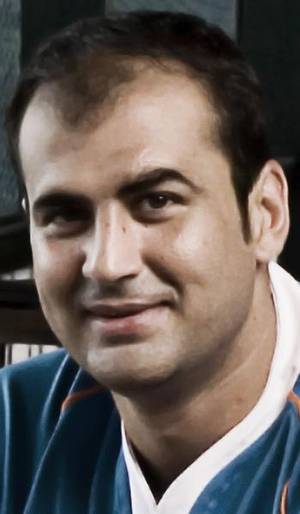
Nasser Hussain, former India rugby captain, is involved with rugby taking roots across the nation as Rugby India general manager.
The Societe Generale Junior National Rugby Sevens at the Bombay Gymkhana attracted participation from 18 States. He talks about tribals in Odisha taking up the sport, switch over from athletics, kabaddi to rugby.
Excerpts from a chat:
Rugby Sevens is the route to the Olympic Games. Looking ahead to making a mark at the Asian level before that, can you explain the roadmap for India?
Globally as well as within India, being an Olympic sport puts you in a different bracket and get taken a bit more seriously. We would love to be part of Olympics rugby sevens. Realistically, 2024 or 2028 is the vision we need to have to be part of the Summer Games. Tokyo 2020 is unrealistic to even consider being a part of the competition.
Our approach is to focus at U-18 representative teams and junior tournaments. Five to 10 years from now, they will be 25 or 27 by then. We work with the School Games Federation of India (SGFI) and have U-19, U-18, U-17 teams. The federation is pushing for U-14 tournaments as part of the National School Games by the next academic year.
Schools Nationals is the starting point for Rugby India to do talent-spotting. Having convinced SGFI to include rugby, what is the next step for talented kids to represent India?
Through the National School Games, we send the national team for the U-18 Asian Schools Rugby Sevens. The event is held once every two years. Federation cannot send an entry directly, it has to be routed through SGFI and they supported us. If there is scope, India might look at hosting the Asian U-18 event in future.
Eighteen States taking part in Junior Nationals 2016, five more than last year, shows the spread of rugby sevens. Which States have a headstart ovevr the rest? Why?
Eighteen States took part in the Junior Nationals here, 18 States send teams for the Senior Nationals in Patna. Junior representation is the same as the seniors, which is encouraging. Odisha in particular has fantastic talent in the juniors age group. Tribals are part of it. They are naturally fit and rugby fits in what they are.
Odisha is winning titles at the School Games, junior Nationals and senior Nationals, hence rugby is promoted by the State Government. Players are getting benefits, like scholarships for an India girls team member, others have joined the police, so they see the sport offering career path.
Rugby is supposed to have caught on at the Kalinga Institute of Social Sciences, Bhubaneshwar. How did this happen?
Rugby India is involved with different States, approaching different schools to get involved. Mr Ashok Mohanty, involved with Odisha Rugby, had a contract with Dr Achyuta Samanta, founder of Kalinga Institute of Social Sciences (KISS). We did an exhibition match and demonstration in 2006-2007 and they got interested.
KISS is home to 20,000 students who stay and study. They have taken up rugby, probably the number one sport at the institute. Players have gone on to represent India, girls were part of the national squad at the Asian event. We are seeing a culture developing for rugby.
For parents or young rugby players, injury is a worry, like in any contact sport. Does rugby sevens cut down the risk factor, at tournaments like the juniors Nationals?
We have faced misconception in the past about rugby being a violent game. Our approach is to let kids play non-contact rugby, called ‘touch rugby’, at the U-14 level with all the schools we approach. It promotes fitness, teamwork, leadership, all these are values of the game. We don’t push them to get into contact rugby till they move to U-16. Internationally, contact rugby is played at U-13 with slight variations.
Patna hosted the Sr. Nationals, Bhubaneshwar hosted the Jr. Nationals Rugby Sevens last year. Going by the following for the sport there, anything different in players there.
We see transfer of talent from athletics to rugby in girls’ category. Shweta Sahi, one of the India players who went to Sri Lanka for the Asian Rugby Sevens championships, is a sprinter and started rugby two years ago. Rugby has attracted football players. Mumbai police men and women sides are kabaddi players, similar skill sets are required and kabaddi or football are also a contact sport, adapting is easy. We are open to players from different sports enjoying rugby.
For junior Nationals performers, U-18 girls/boys, any future camp finalised?
U-18 girls will have a training camp in early November, maybe in Mumbai. Girls have been shortlisted from earlier competitions, we will have a relook at them and add more names, if required.
Dubai is hosting the Asian Girls U-18, the first time Asian Rugby is hosting a girls U-18 event, featuring eight teams from Asia. India has confirmed participation. For the boys, there is an U-20 in future and we are looking at sending a team to gain international exposure. We don’t get experience playing sides better than us, more professional in their approach.
source: http://www.thehindu.com / The Hindu / Home> Sports> Other Sports / by Nandakumar Marar / October 23rd, 2016








